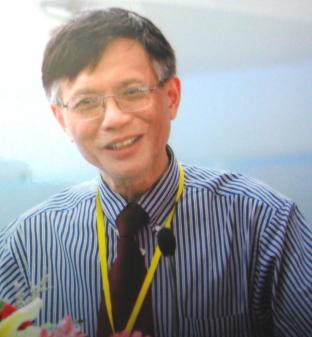Biography
Dr. Li's research focuses on the generation of tumor-reactive effector cells for adoptive immunotherapy of cancer. To sensitize/induce tumor-reactive T cells and B cells in vivo, lymph node cells are primed utilizing as vaccines the genetically modified tumor cells, tumor cells admixed with bacterial adjutants, or antigen/antigen presenting cells. In order to optimize the methods that are capable of expanding lymphoid cells in vitro while maintaining or augmenting their antitumor reactivity, Dr. Li's research effort centers on developing new strategies for T cell and B cell activation/expansion using monoclonal antibodies, recombinant cytokines, as well as other T cell and/or B cell stimuli. Dr. Li's research effort is also devoted to the identification and characterization of tumor-specific T cell and B cell subsets. This issue is addressed by defining the specific antitumor reactivity of CD4+ or CD8+ T cells; differentiating Th1/Tc1 versus Th2/Tc2 cytokine responses; studying molecular markers on T cells or B cells by T cell or B cell subsets. Dr. Li's current research interests involving development of novel therapeutic approaches by targeting cancer stem cells or by isolating and characterizing tumor associated antigens represent new directions taken in the laboratory.
Dr. Li is a member of the Cancer Hematopoiesis and Immunology Program of the Rogel Cancer Center at the University of Michigan. His research to develop innovative cancer treatment approaches through T, B cell adoptive immunotherapy and cancer stem cell-targeted vaccination is clinically relevant.
Research Interests
My research has been in the area of developing immunotherapies for cancer using immune cells, such as T cells, B cells and dendritic cells (DCs). Recently, my research has been focused on the following two directions: B cells in cancer adoptive therapy and DC-based cancer stem cell (CSC) vaccine.
The role played by B cells in cancer immunology is complex and somewhat controversial, and has been largely neglected. We hypothesize that successful anti-cancer treatment strategy will have to appropriately stimulate both humoral as well as cellular immunity. To this end, we demonstrated that simultaneous targeting of CD3 on T cells and CD40 on B or DC cells augments the antitumor reactivity of the effector cells. We have also demonstrated that B cells can be secondarily activated to mediate antitumor responses in an adoptive transfer model either independently or in synergy with T cells. More recently, we find that adoptively transferred effector B cells can inhibit cancer spontaneous metastasis by direct killing of the tumor cells.
The CSC model represents a new paradigm for the development of cancer treatments. Conventional cytotoxic chemotherapy and immunologic approaches may kill most of the non-tumorigenic cells in a tumor, but CSCs survive due to their relative high resistance to drugs or non-responsiveness to immunotherapy. As a result, tumor relapses. We recently characterized CSC-enriched populations in two histologically distinct murine tumors (melanoma D5 and squamous cell cancer SCC7), and evaluated the antitumor immunogenicity by administering DC-based CSC vaccines in two genetically different syngeneic immunocompetent hosts. If our hypothesis can be tested in animal models, the findings may help identify innovative immunological approaches for human cancer treatment by specifically targeting cancer stem cells.
Publications
- Li, Q., Lao, X., Pan, Q., Ning, N., Yet, J., Xu, Y., Li, S., Chang, A.E.: Adoptive transfer of tumor reactive B cells confers host T cell immunity and tumor regression. Clinical Cancer Research, 17 (15):4987-95, 2011. PMID: 21690573; PMCID: PMC3149727
- Ning, N., Pan, Q., Zheng, F., Teitz-Tennenbaum, S., Egenti, M., Yet, J., Li, M., Ginestier, C., Wicha, M.S., Moyer, J.S., Prince, M.E.P., Xu, Y., Zhang, XL., Huang, S., Chang, A.E., Li, Q.: Cancer stem cell vaccination confers significant anti-tumor immunity. Cancer Res, 72(7):1853–64, 2012 PMID: 22473314; PMCID: PMC3320735. With American Association for Cancer Research Press Release on April 2, 2012: http://www.aacr.org/home/public--media/aacr-press-releases.aspx?d=2744 (link is external)
- Huimin Tao, Lin Lu, Yang Xia, Fu Dai, Yi Wang, Yangyi Bao, Steven K. Lundy, Fumito Ito, Qin Pan, Xiaolian Zhang, Fang Zheng, Guoshun Shu, Bingmu Fang, Jinhong Jiang, Jianchuang Xia, Shiang Huang, Qiao Li and Alfred E. Chang: Antitumor effector B cells directly kill tumor cells via the Fas/FasL pathway and are regulated by IL-10. Eur. J. Immunol. 45: 999–1009, 2015
- Lin Lu, Huimin Tao, Alfred E Chang, Yangyang Hu, Guoshun Shu, Quanning Chen, Martin Egenti, John Owen, Jeffrey S Moyer, Mark Ep Prince, Jian-chuan Xia, Shiang Huang, Max S Wicha, and Qiao Li:Cancer stem cell vaccine inhibits metastases of primary tumors and induces humoral immuneresponses against cancer stem cells. OncoImmunology 4:3, e990767, 2015
- Qin Pan, Qiao Li, Shuang Liu, Ning, XiaoLian Zheng, Yingxin Xu, Alfred E. Chang, Max S. Wicha: Targeting Cancer Stem Cells Using Immunologic Approaches. STEM CELLS 33:2085—2092, 2015
- Mark E.P. Prince, Huimin Tao, Jeffrey S. Moyer, Lin Lu, John Owen, Martin Etigen, Fang Zheng, Alfred E Chang, Jianchuan Xia, Gregory Wolf, Max S Wicha, Shiang Huang, Qiao Li: Evaluation of the immunogenicity of ALDHhigh human head and neck squamous cell carcinoma cancer stem cells in vitro. Oral Oncology, 59:30-42, 2016
- Yangyang Hu, Lin Lu, Yang Xia, Alfred E. Chang, John Owen, Jeffrey S. Moyer, Mark E.P. Prince, Fu Dai, Yangyi Bao, Jian-chuan Xia, Shiang Huang, Max S. Wicha, Qiao Li:Therapeutic efficacy of cancer stem cell vaccines in the adjuvant setting. Cancer Res, 76:4661-72, 2016
- Zheng F, Dang J, Zhang H, Xu F, Ba D, Zhang B, Cheng F, Chang AE, Wicha MS, Li Q,: Cancer stem cell vaccination with PD-L1 and CTLA-4 blockades enhances the eradication of melanoma stem cells. Journal of Immunotherapy41: 361-368, 2018
- Scheetz L, Park C, Li Q, Lowenstein PR, Castro MG, Schwendeman, A, and Moon JJ. Engineering strategies for personalized cancer immunotherapy: a paradigm shift. Nature Biomedical Engineering 3:768–782, 2019
- Ruan S, Lin M, Zhu Y, Lum LG, Thakur A, Chen Y, Jin R, Shao W, Zhang Y, Hu Y, Huang S, Hurt EM, Chang AE, Wicha MS, and Li Q.: Integrin β4-targeted cancer immunotherapies inhibit tumor growth and decrease metastasis. Cancer Res 80:771–83, 2020

